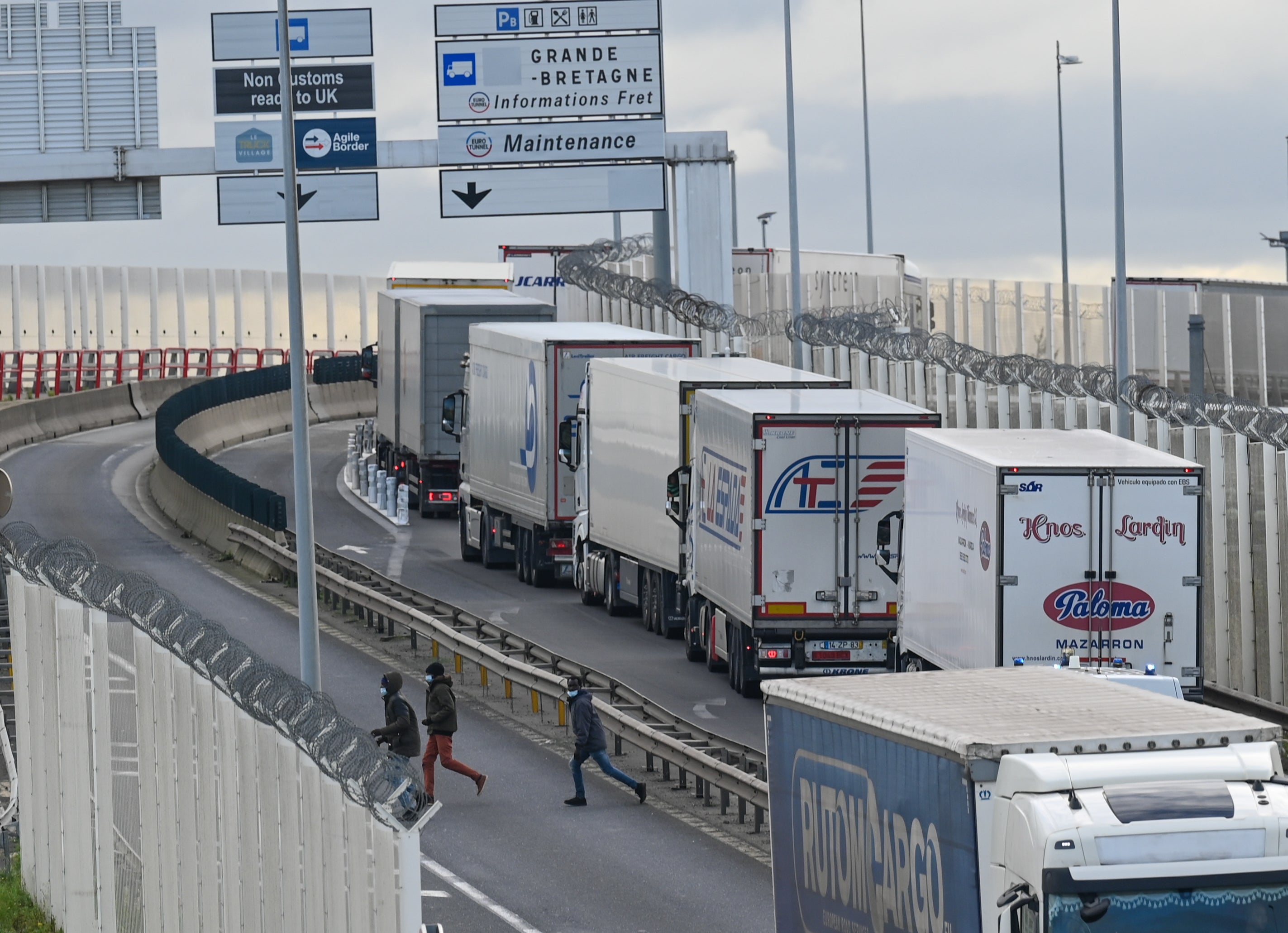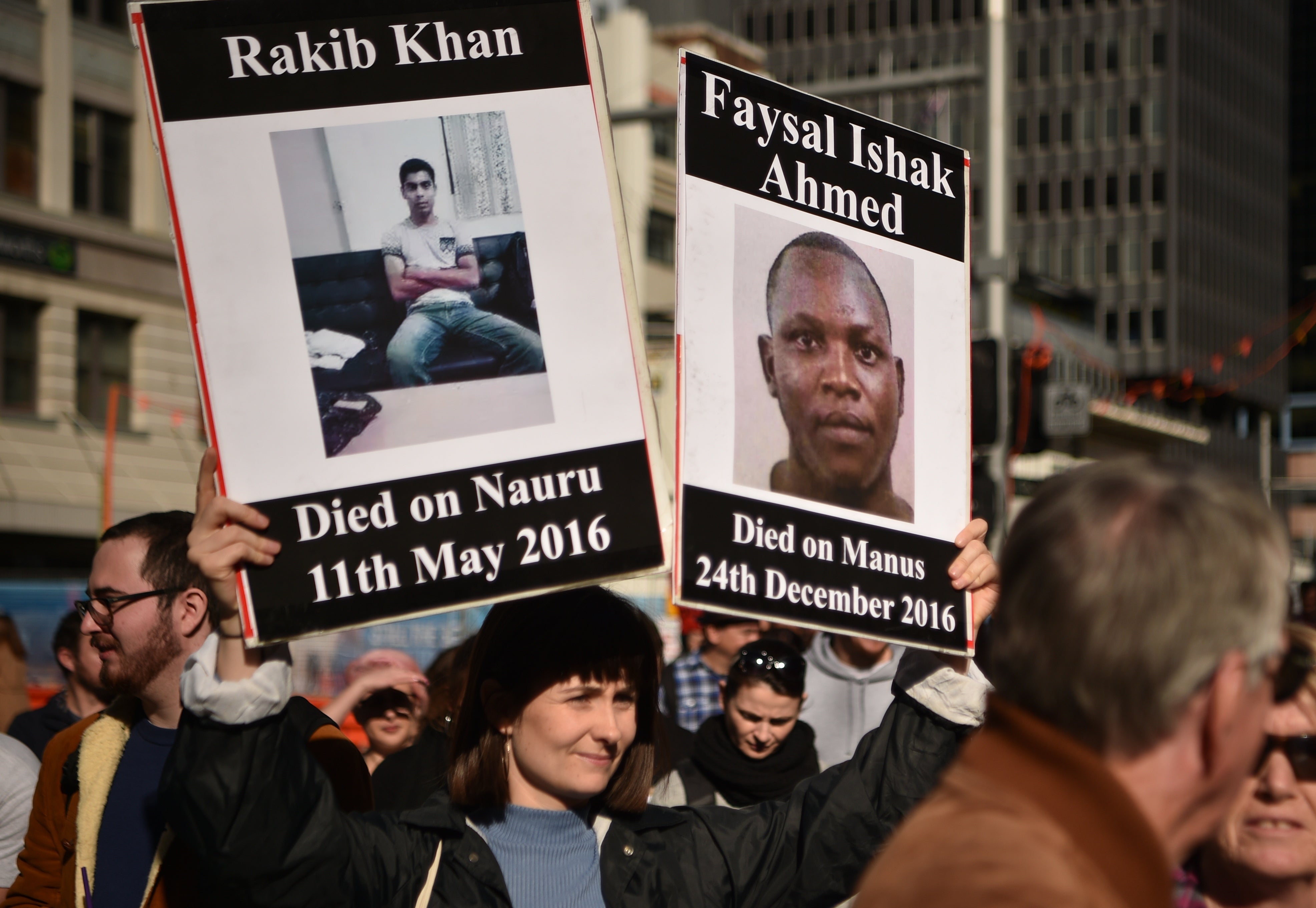The true cost of Priti Patel’s borders bill
After the ‘hostile environment’ and ‘take back control’, immigration measures are being pushed through that will mean high costs and human misery, writes May Bulman


For years, the British government has congratulated itself on its “proud history” of offering protection to those who have fled conflict and persecution. Ministers have boasted about being a “tolerant” nation that “welcomes migrants and meets our international obligations to refugees”. They have proclaimed the UK to be a “leader” in the global fight against modern slavery.
This stance has become increasingly questionable over the past decade. The hostile environment, brought in by David Cameron’s government in 2012, has wrongly branded people illegal immigrants. Brexit and the drive to “take back control” of our borders has fostered xenophobia and turned “Global Britain” into “little England”. Now, under a new raft of immigration measures being pushed through Boris Johnson’s government, the claims of being “welcoming” and “tolerant” will be impossible to maintain. The Nationality and Borders Bill, currently going through the House of Lords, is founded primarily on the basis that people who claim to be in need of our help are in fact lying and should be punished.
Imprisoning refugees, detaining asylum seekers in offshore hubs and physically turning back boats of people who have fled persecution – including those from countries such as Afghanistan and Ukraine, where civilians are known to be at risk of harm – may sound like ideas of the far right, but they are at the forefront of this Tory bill. With a clause that will see people deprived of their citizenship without notice and recognised modern slavery victims deprived of support also part of the legislation, it is set to weaken the systems designed to protect some of the most vulnerable in society.
The measures have attracted widespread criticism. The UN refugee agency (UNHCR) has accused ministers of taking an “almost neo-colonial approach”; the government’s own modern slavery watchdog has warned that it will lead to a rise in exploitation in the UK; senior Tory MPs have broken ranks over the legislation, warning that it is “dangerous” and “fundamentally at odds” with international refugee laws.
Yet despite the warnings, Boris Johnson’s government is ploughing on.

And to what end? Home secretary Priti Patel, the architect of the bill, has described the measures as the “most comprehensive reform in decades to fix the broken asylum system”. She claims it will prevent foreign criminals from “abusing” UK laws to avoid being removed from the country and will allow the UK to finally “take back control of our borders” – describing these as the “people’s priorities”.
No one can dispute that the UK’s asylum system is broken. More than 100,000 people are waiting for an initial asylum decision – a 241 per cent rise on four years ago – and the number waiting more than a year surged more than tenfold over the last decade. The government is having to shell out vast amounts of taxpayers’ money to house and support them while record numbers wait to discover their fate. As of last September 2021, there were nearly 64,000 asylum seekers – a record number – housed in government-funded accommodation. Around 25,000 of them are in hotel rooms, at a cost of £3.5m a day, while several hundred are being held in military barracks in conditions judged to be unlawful by the High Court. The vast majority are prevented from working, leaving them totally reliant on the state.
Further evidence that the system is broken is the recent surge in small boats crossing the Channel. More than 28,526 men, women and children were detected crossing in this way last year – a 237 per cent increase on 2020. The dangers were brought into sharp focus last November when 27 people, including three children and a pregnant woman, tragically drowned off the coast of France while trying to reach Britain.

But is Patel’s “overhaul” of the asylum system going to fix this?
Prominent immigration barrister Colin Yeo doesn’t think so. “There are serious problems in the asylum system. The main problem is the long waits for a decision, but nothing in the legislation is going to deal with this,” he told a recent online event organised by the University of Bristol, explaining that, rather than being about the law, the failings are down to “basic bureaucratic management” in the Home Office.
“It doesn’t feel like a serious piece of legislation,” he continued. “It is really serious in the sense that it is going to have a very negative effect on a lot of vulnerable people, but beyond being horrible to them and essentially punishing them, it won’t have public policy impact […] A lot of it just looks unnecessary and symbolic.”
Indeed, far from fixing the broken system, the bill is made up of seemingly unworkable policies that are designed to gain headlines rather than to actually solve the problems. It only takes looking at some of the intended changes and how they will work in practice – or whether they will work at all – to realise this.

Given Patel is herself a daughter of refugees, it is perhaps surprising that clause 11 of the bill will penalise refugees for their method of arrival to the UK. Those who come via unauthorised routes, such as in small boats or by stowing away in trucks, which makes up the majority of asylum seekers coming to the UK, will not be granted asylum in Britain, regardless of how strong their claim is, essentially creating two tiers of refugee.
Patel plans to go further, by making it an illegal offence to make the journey, meaning those arriving could be deported to a third country or jailed. If not removed or imprisoned, they will be granted a form of temporary status that affords them no access to benefits and no family reunion rights. They will be regularly re-assessed for removal, leaving them in a perpetual state of uncertainty and given a lower class of status than the rest of society, while also increasing administrative costs. The UNHCR has raised the alarm that this two-tiered approach will also breach the 1951 Refugee Convention and unnecessarily “stigmatise” people feeling persecution. Prominent Tories, including David Davis and Dominic Grieve, have said the policy is “dangerous” as it will see Britain “significantly breach key international obligations”.
Ministers justify these harsh plans by saying people fleeing war and persecution should come to Britain via “safe and legal” routes – but there is a distinct lack of these routes available. Official data shows that the number of people who come to Britain under refugee resettlement schemes has plummeted by 75 per cent in the last four years, from 6,212 in 2017 to 1,578 last year. These schemes are generally only accessible from refugee camps in certain countries, leaving many people trying to escape danger unable to get protection in the UK unless they make the journey via an unauthorised route. This includes many Ukrainians and Afghans who at present do not have any way of reaching Britain other than by making a treacherous journey. Patel claims the bill will “strengthen” safe routes but there is no detail in there on how or when she will do this.

Provisions in the bill also include powers related to the so-called “pushback” of those seeking to cross the Channel in small boats, which would enable Border Force to turn the vessels around. It appears increasingly unlikely that there is any legal basis for use of the controversial tactic. Cross-party MPs from the Joint Committee on Human Rigts have warned that it would be contrary to the UK’s obligations under the right to life and international maritime law and would “increase the risk” of people drowning.
Border Force staff themselves have also spoken out against the policy, with its union warning that it would be “unlawful, unworkable and above all morally reprehensible”. The union PCS is in the process of mounting a legal challenge against the plans. Earlier this month, it was announced the military would be taking charge of cross-Channel counter migration operations and, tellingly, the defence secretary was quick to clarify that the Navy did not intend to pursue pushbacks.
A similarly ridiculous and seemingly unworkable proposal in the bill is to hold asylum seekers in offshore processing hubs while they await decisions on their claims. The plan mirrors the offshoring policy adopted by Australia, first in 2001 and then reintroduced in 2013, when asylum seekers were held on islands of Papua New Guinea and Nauru. Australia’s policy move was branded a “national shame” after it emerged that asylum seekers died from violence, medical inattention and suicide.
Embarrassingly for ministers, when they have floated plans to offshore asylum seekers to specific nations over the past year, said countries – including Albania and Ghana – have quickly refuted the claims.

The offshoring idea is born out of ministers “trying to sound like they’ve got a tough response” to the rise in Channel crossings, says Dave Wood, former head of immigration enforcement under Theresa May. “Once it’s been thought through I’m sure they won’t implement it because they’ll see it’s mad,” he adds. “More importantly, it doesn’t solve any of the problems they’re trying to solve. It’s party politics and trying to sound tough to the public, but they can’t answer the important questions."
While the new legislation is centred largely on these outlandish reforms relating to asylum, there are several other significant changes being pushed through about other elements of the immigration system which have had alarm bells ringing.
A whole section of the bill relates to changes to the modern slavery support system, which Patel claims will prevent people from being able to “take advantage of modern slavery safeguards” in order to prevent their removal and enable them to stay in the UK. Yet her evidence of this “abuse” is severely lacking, with her department unable to provide any data showing that there has been a rise in false claims.

Under the changes, potential victims who have been sentenced to prison for more than 12 months will be disqualified from accessing support under the National Referral Mechanism – designed to offer housing, financial support and counselling to potential victims. This disregards the fact that many victims have been coerced into committing crimes by their exploiters. The bill will also limit the timeframe in which non-British survivors can disclose that they have suffered abuse – failing to recognise that it can take years for one to feel ready to recount traumatic experiences.
These reforms take the “entire opposite approach” to the Modern Slavery Act 2015, a series of laws designed to combat slavery in the UK, according to Dame Sara Thornton, the UK’s Independent Anti-Slavery Commissioner. They will only serve to enable more exploitation to take place in the UK, she says, creating “deserving victims and undeserving victims” and “undermining [the government’s] ability to prosecute traffickers”.
Caroline Haughey QC, a leading barrister who is the UK’s foremost trafficking prosecutor and helped draft the country’s modern slavery laws, echoes her concerns, saying the bill would “destroy” much of the legislation designed to protect victims. Sir Iain Duncan-Smith, former leader of the Conservatives, has warned that it will lead to “vital intelligence” on trafficking cases being “lost”.

Another element of the bill that has drawn criticism is a clause that was snuck in last November, which would allow the home secretary to remove a person’s British citizenship without having to notify them if she believed it was in the interests of national security, diplomacy or “otherwise in the public interest”. The government has been able to deprive people of their citizenship for more than a century – but never without informing them. Experts warn that this policy would leave large swathes of people, particularly those from black and ethnic minority communities, at risk and lead to Windrush-style injustices.
As the bill goes through the report stage in the House of Lords this week, it is important to ask what the government is trying to achieve through it. As laid out above, the policies are largely centred on being tough on “illegal” migration, but in fact a lot of them appear to be either ineffective or totally unworkable, and are only set to increase the cost to the taxpayer. A recent study found that the asylum plans will cost the taxpayer more than £2.5bn a year – almost double what is spent on the current system.
Ministers like to claim that implementing harsher policies will act as a deterrent and stop refugees coming to the UK, but they have no evidence to support this notion. Their own equality impact assessment of the bill concedes that evidence that the measures will discourage asylum seekers from undertaking dangerous journeys to reach the UK is “limited”.
Instead, all of the evidence suggests that by implementing the Nationality and Borders Bill, the government will not only lose its status as a “welcoming” and “generous” nation by treating those in need with gross inhumanity, but will also plough more taxpayer money into the broken asylum system while doing absolutely nothing to actually fix it.




Join our commenting forum
Join thought-provoking conversations, follow other Independent readers and see their replies
Comments